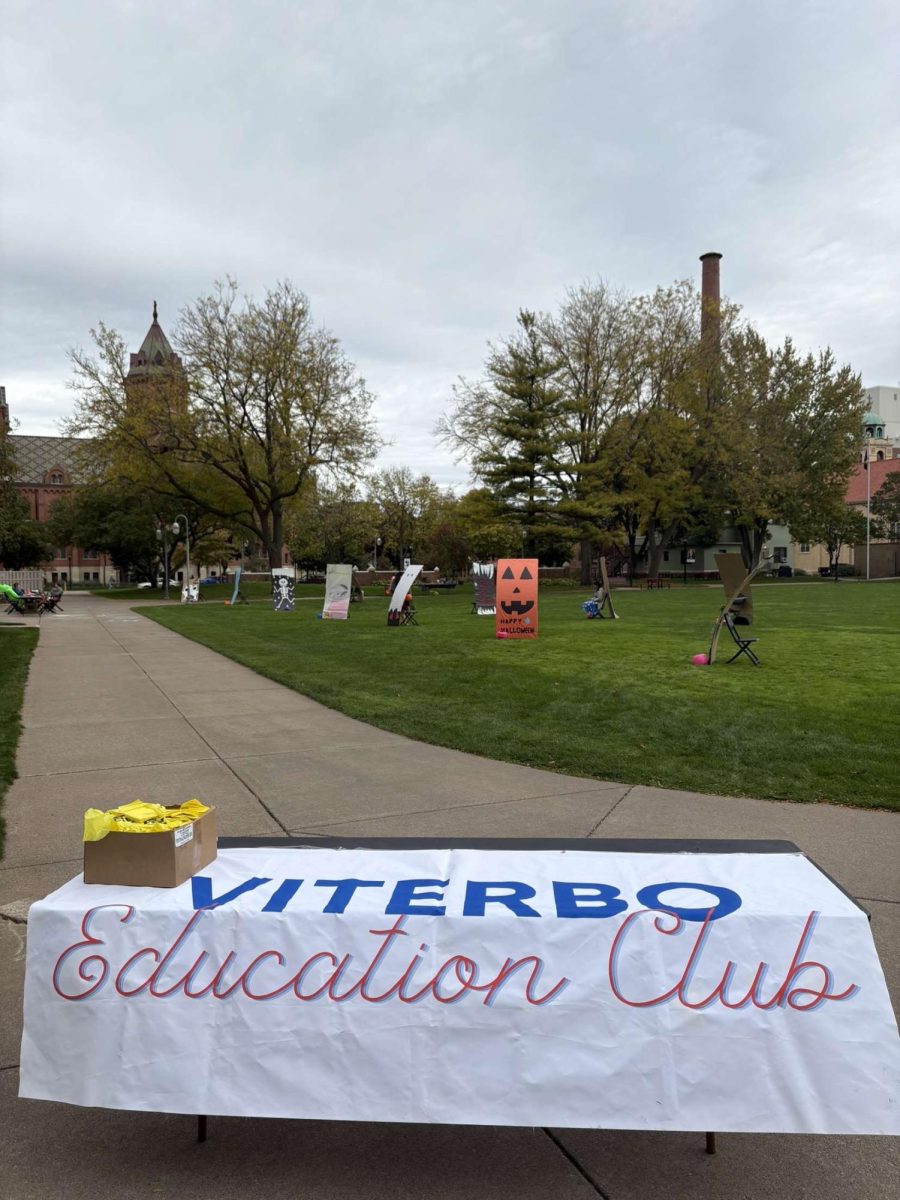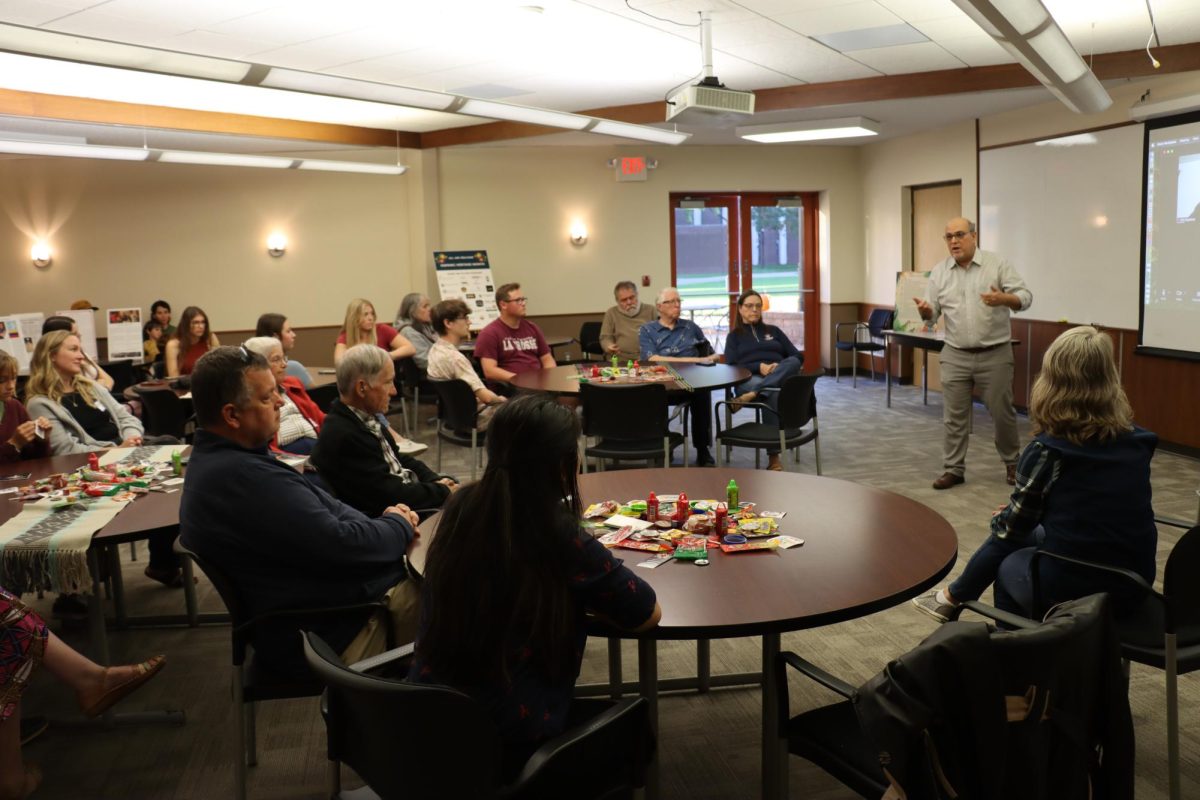On November 17, the Viterbo University Identities Project series hosted directors of New Immigrant and Refugee Visions, a film series sponsored by Community Supported Film. Based in Boston, Massachusetts, CSFilm is an agency that, according to its website, “trains women and men in under- and mis-represented communities to effectively communicate their pressing issues through documentary filmmaking.”
The night’s presentation featured three films from the NIRV collection, each telling the unique story of an immigrant. The disconnect between the subjects of documentary films and those making them motivated Michael Sheridan, the organization’s founder, to give a place for filmmakers like Sayed Hashimi, Mohammad Arifuzzaman, and Abdirahman Abdi to tell the stories of fellow immigrants to America. The featured films were “Navigating Hope,” “Seeking Settled Ground,” and “Worlds Apart at Home,” respectively.
Sayed Hashimi came from Afghanistan with his wife and three young children in 2016. His film features Mani Biswa, a case manager at the New American Center in Lynn, Massachusetts. After spending more than 17 years in a refugee camp, the now-father of three boys came to American from Bhutan due to the Buddhist government’s persecution of his Christian faith. Also giving his time as a community health worker at the Lynn Community Health Center, Biswa remarked, “People came here seeking hope,” juxtaposing that spark of levity with the reality that many of those he serves have “…anxiety and…difficulties going on…they don’t even feel comfortable [walking] into the Health Center. They feel like they might be arrested, deported; this is very sad for me.”
Mohammad Arifuzzaman immigrated from Bangladesh in 2016. His film featured Mohammad Anwar, whose journey as a refugee crossed Thailand and Indonesia before he was given asylum in the United States. A Rohingya Muslim originally from Myanmar, Anwar was forced to flee after the government of the Buddhist-majority nation started arresting and killing Rohingya people in 2015. Walking to the coast and boarding a boat, Anwar said he spent an untold number of days at sea with 500 to 600 other people. The United Nations and the Indonesian government helped him reach America two years later. At the time of the film’s production, Anwar found work in a restaurant, reflecting, “I’ll make things better day by day” as he took in the beauty of Boston’s historic Park Street. “Nobody wants to be a refugee,” he tells viewers, “It’s just the situation and pain that makes you leave your own country…”
Abdirahman Abdi came from Somalia as a refugee in 2007. His film followed Samira Ahmed and her family. Now a mother of five children, Ahmed was motivated to come to Massachusetts in 1993 due to civil war in Somalia. Seeking to bridge the gap between American culture and the Somali one, which her children had never known, she became active in the Somali American Youth Parents Association. Motivated by her conversations with fellow Somali mothers and her experiences with the Association, Ahmed concludes, “The person that doesn’t know their roots is a person who doesn’t respect their parents.”
The Identities Project event, presented on Zoom, was recorded and is available via a link on the Identities Project tab under Campus Activities on the Viterbo website. For more information of Community Supported Films, the NIRV films’ directors, and their subjects, visit csfilm.org.

